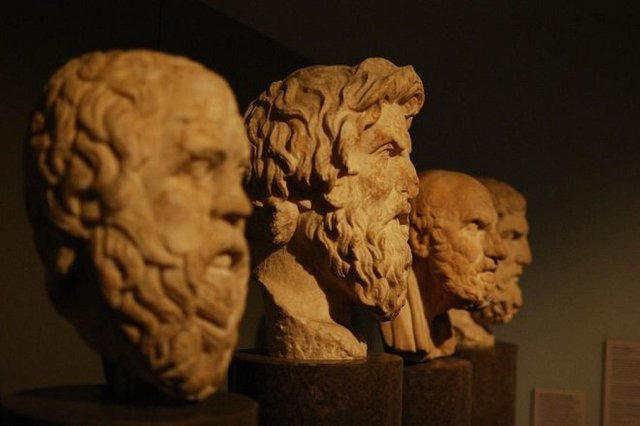Plato and his immediate experience with God
If God is self-revealing to humans - for example, in the light and light of inner illusion - in which they receive a new vision of the world, or of their very nature knowledge and mystical vocation, this is related to such a comprehensive spiritual rebirth and transformation that for man there is no room for any doubt that God really exists. / As an illustration, see selected places from the Confessions of Augustine. /
The data on these exceptional experiences provokes doubt in others because they are unknown to them or some have no sense for them. And this is self-evident. You can not make an analogy with something that does not exist with you. This spiritual experience and evidence, however, further highlights the truth that God is not only a secret but also a acting Person. Mystical experience is a very rare gift in which one can prepare and go on the path of spiritual purification and exaltation. It is an internal enlightenment of godliness that connects God and man in unity and unity. The Way of Spiritual Cleaning: Relief from sins and affection for material goods; God-destroying.Lighting: Experience of Inner Illumination of Light / Vision for Crystal Clear Light associated with different insights into the depths of the spirit;The knowledge thus obtained enables man to realize God and the world in the dependence and condition of the latter by God's primary cause; Understanding the world and life in its theocentricity and Christocentricity.The Way of Unification: Mystical touch with God; Relationship to God through love. Plato's doctrine is not systematically exposed to objects.
All of his writings pose a variety of problems and very often the claims in one essay on a problem do not agree with the statements in the other pieces of work on this subject. However, his teaching is complete, complete, and comprehensive: it covers the problems of God, the external world, and the inner spiritual world of man. Plato's philosophy combines in an organic whole the teachings of many of the preceding philosophers. The most immediate and complete feeling is the influence of Heraclitus, Parmenides, Socrates and Pythagoras, and, to some extent, of Anaxagoras and Democritus. The teachings of Heraclitus about constant variability are perceived by Plato in half. He sees that specific external objects as well as specific mental experiences are transient, constantly volatile, flowing.
Along with this, however, in the world there is one being, invariably, everlasting, still in peace. Only in comparison to it we notice the transience of the former. The doctrine of this being Plato has borrowed from Parmenides. But between Parmenides and Parmenides there is the difference that while Parmenides accepts that the true invariable being is one, continuous and indivisible, Plato under the influence of Democritus Atomism assumes that the true being is plural. Also from Parmenides, Plato differs in that he accepts the existence of the second-transient, transient being, which does not have the full reality of the real, but it is not quite anything, but it is non-existent.From Socrates, Plato takes on his dialectical philosophical method and places ethical issues first among philosophers. Plato's real beneficial influence is tested by Anaxagoras's teachings on the rationality and expediency of the world. And for him, as we shall see, the world is a harmonious, appropriately ordered, communicating a separate meaning, purpose.
